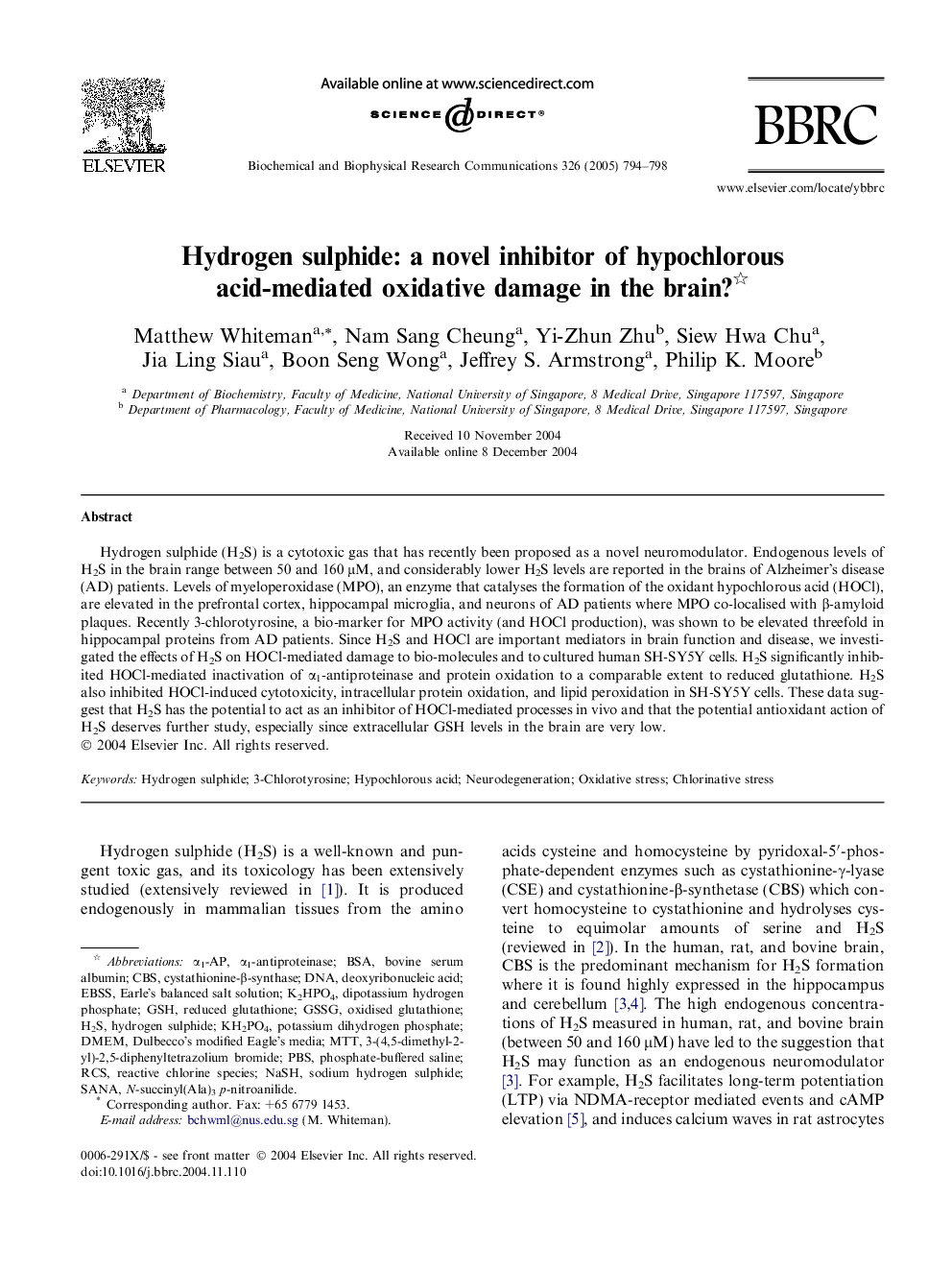| Article ID | Journal | Published Year | Pages | File Type |
|---|---|---|---|---|
| 10771982 | Biochemical and Biophysical Research Communications | 2005 | 5 Pages |
Abstract
Hydrogen sulphide (H2S) is a cytotoxic gas that has recently been proposed as a novel neuromodulator. Endogenous levels of H2S in the brain range between 50 and 160 μM, and considerably lower H2S levels are reported in the brains of Alzheimer's disease (AD) patients. Levels of myeloperoxidase (MPO), an enzyme that catalyses the formation of the oxidant hypochlorous acid (HOCl), are elevated in the prefrontal cortex, hippocampal microglia, and neurons of AD patients where MPO co-localised with β-amyloid plaques. Recently 3-chlorotyrosine, a bio-marker for MPO activity (and HOCl production), was shown to be elevated threefold in hippocampal proteins from AD patients. Since H2S and HOCl are important mediators in brain function and disease, we investigated the effects of H2S on HOCl-mediated damage to bio-molecules and to cultured human SH-SY5Y cells. H2S significantly inhibited HOCl-mediated inactivation of α1-antiproteinase and protein oxidation to a comparable extent to reduced glutathione. H2S also inhibited HOCl-induced cytotoxicity, intracellular protein oxidation, and lipid peroxidation in SH-SY5Y cells. These data suggest that H2S has the potential to act as an inhibitor of HOCl-mediated processes in vivo and that the potential antioxidant action of H2S deserves further study, especially since extracellular GSH levels in the brain are very low.
Keywords
Related Topics
Life Sciences
Biochemistry, Genetics and Molecular Biology
Biochemistry
Authors
Matthew Whiteman, Nam Sang Cheung, Yi-Zhun Zhu, Siew Hwa Chu, Jia Ling Siau, Boon Seng Wong, Jeffrey S. Armstrong, Philip K. Moore,
